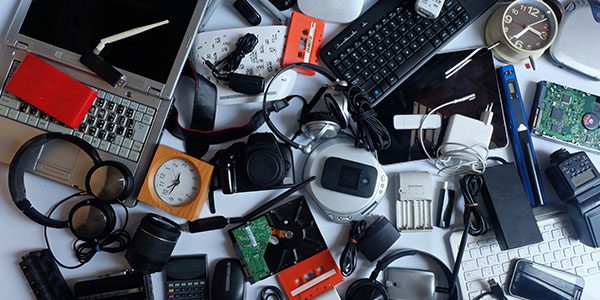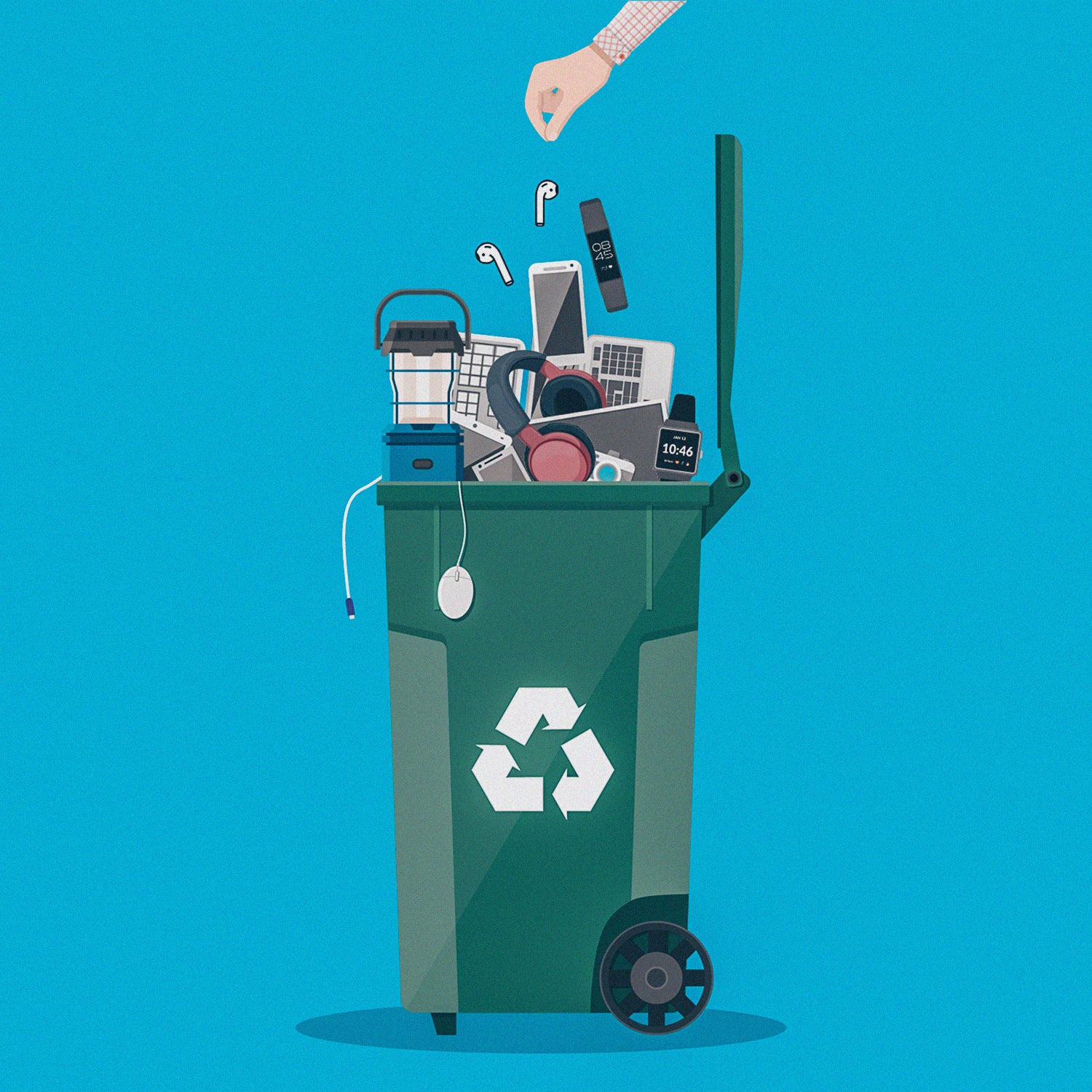Secure Your Ecological Commitment: Electronics Reusing with R2 Certification
Secure Your Ecological Commitment: Electronics Reusing with R2 Certification
Blog Article
Elevate Your E-Waste Administration With R2 Accreditation: an Extensive Overview
One secret approach to elevate e-waste monitoring practices is by achieving R2 accreditation. By discovering the benefits and processes connected with R2 qualification, a deeper understanding of how it can reinvent e-waste management methods emerges, losing light on a course towards sustainability and ethical disposal methods.
Relevance of E-Waste Management

When e-waste is not taken care of correctly, these poisonous substances can seep right into the community, creating injury to wildlife and potentially going into the food web, positioning threats to human wellness. The improper disposal of e-waste contributes to air pollution and greenhouse gas exhausts, intensifying climate adjustment and ecological degradation.

Benefits of R2 Accreditation

Firstly, R2 certification improves reliability by showcasing a company's dedication to lasting practices. It guarantees consumers, partners, and stakeholders that the business abides by rigid requirements for e-waste monitoring - r2 certification. This trustworthiness can bring about enhanced trust fund and boosted relationships with clients that focus on ecological responsibility
Secondly, R2 qualification helps reduce threats connected with improper e-waste disposal. By complying with the rigorous standards established forth by the certification, organizations can lessen the chance of information violations, environmental contamination, and legal repercussions. This positive technique safeguards the firm's reputation and reduces prospective obligations.
Last but not least, R2 qualification shows a commitment to environmental stewardship - r2 certification. By responsibly managing electronic waste with accredited processes, organizations contribute to the conservation of resources, reduction of pollution, and promotion of a circular economic climate. This commitment not just benefits the environment but also aligns with developing consumer expectations for lasting organization practices
R2 Certification Refine Summary
Having established the benefits of R2 qualification in advertising trustworthiness, threat mitigation, and environmental stewardship, it is essential to currently detail the in-depth procedure associated with obtaining this qualification. The R2 certification procedure starts with a detailed evaluation of the company's functional policies blog here and treatments to make sure compliance with the R2 standard. This initial analysis is crucial in determining any voids that require to be dealt with prior to proceeding further.
As soon as the organization's techniques line up with the R2 basic needs, an independent third-party auditor carries out an on-site audit to evaluate the application and effectiveness of these techniques. This audit includes a thorough review of documents, interviews with team, and physical evaluations of centers to verify conformity.
Following an effective audit, the company receives a qualification decision based upon the auditor's searchings for. If find authorized, the company is granted R2 accreditation, demonstrating its commitment to liable e-waste management. It is very important to note that preserving R2 qualification requires continuous conformity with the standard's requirements and regular audits to make certain continued adherence to finest techniques in e-waste recycling and disposal.
Key Requirements for R2 Conformity
An essential element of accomplishing R2 conformity is guaranteeing that all digital waste (e-waste) handling centers meet strict ecological and safety standards. To adhere to R2 demands, companies have to follow essential requirements that concentrate on liable e-waste monitoring practices. These criteria include executing a documented ecological, wellness, and safety and security monitoring system, ensuring the protected handling of data-containing gadgets, and carrying out complete downstream due persistance to track the last location of e-waste products.
Furthermore, R2 conformity demands the proper screening, repair, and recycling of digital tools to expand its useful life and reduce environmental effect. Facilities seeking R2 accreditation should likewise prioritize worker health and wellness by supplying necessary training, personal safety tools, and a risk-free working atmosphere. Furthermore, preserving thorough documents of e-waste processing tasks and on a regular basis going through audits by best site accredited licensing bodies are crucial parts of showing ongoing compliance with R2 requirements.
Effects of Lasting E-Waste Practices
The implementation of lasting e-waste practices according to R2 conformity not only guarantees ecological and security standards are fulfilled however also dramatically affects the overall lifecycle of digital products. By sticking to R2 standards, digital waste administration procedures end up being more effective, reducing the ecological footprint of digital products. Sustainable e-waste techniques assist in the correct disposal of electronic parts, making sure that hazardous products are handled properly and do not end up polluting the setting.
Furthermore, welcoming sustainable e-waste methods advertises the circular economic situation by helping with the healing and reuse of valuable materials from digital products. This not only saves priceless resources yet also minimizes the demand for resources extraction, decreasing the environmental effect of digital manufacturing. Additionally, sustainable e-waste techniques can add to job development in the recycling and repair industries, cultivating financial development while advertising environmental obligation. On the whole, the fostering of sustainable e-waste practices under R2 accreditation acts as a crucial step towards accomplishing an extra eco lasting electronic devices sector.
Final Thought
To conclude, carrying out appropriate e-waste administration practices is important for environmental sustainability and resource preservation. R2 qualification plays a crucial duty in making sure accountable handling and disposal of electronic waste. By adhering to the rigorous standards stated by R2 requirements, organizations can not only decrease their ecological effect however additionally add to a much more sustainable future for generations ahead.
One secret method to raise e-waste administration methods is by obtaining R2 accreditation. By checking out the advantages and procedures linked with R2 certification, a much deeper understanding of exactly how it can transform e-waste monitoring approaches arises, shedding light on a path towards sustainability and ethical disposal practices.
The R2 qualification process begins with an extensive testimonial of the company's operational plans and procedures to ensure conformity with the R2 standard. If accepted, the organization is approved R2 certification, showing its dedication to accountable e-waste monitoring. In general, the fostering of sustainable e-waste methods under R2 qualification serves as a crucial step in the direction of achieving a much more eco sustainable electronic devices sector.
Report this page